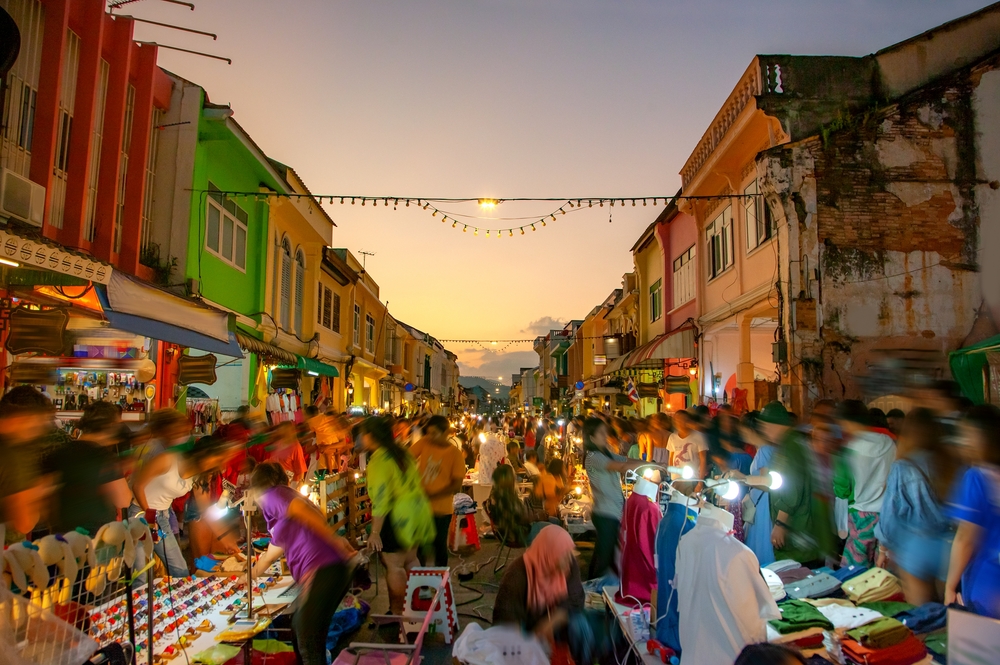Phuket’s tourism shows remarkable growth as a Russian paradise emerges
Phuket bounced back from the pandemic, surpassing pre-COVID levels and attracting Russian tourists and investors

Phuket’s tourism industry has shown significant recovery, with 80 percent improvement compared to 2019, as it welcomes 500,000-600,000 tourists monthly. According to the Bangkok Post, the Phuket Tourist Association (PTA) aims to surpass 14 million tourists, both international and domestic. The COVID-19 pandemic severely impacted Phuket, but its Sandbox scheme in July 2021 reignited tourism.
Foreign arrivals have exceeded pre-pandemic levels, with notable increases in German, Russian, Australian, and Kazakh tourists. However, South Asian visitors have dwindled due to Indian airlines’ bankruptcy. Kazakhstan has emerged as a top-10 nationality visiting Phuket, and the Middle East is a potential market.
The PTA is actively promoting Phuket, planning roadshows in China, Australia, and Russia. Direct flights from international cities are crucial for attracting more visitors. Additionally, retaining regular tourists from China, Russia, Australia, the UK, and Europe remains a priority. New target markets include India, Kazakhstan, Saudi Arabia, Oman, and South Africa.
Related: Embracing the golden years: Thailand, a haven for senior living
Furthermore, the PTA aims to encourage Thai tourists to visit Phuket during the low season through regional roadshows and awareness campaigns, as they make up over 30 percent of overall visitors.
Asia News Network noted that Russian tourists in particular have surged in popularity in Phuket, surpassing Chinese visitors. In the first half of 2023, Russian tourist numbers in Thailand spiked by a remarkable 1,000 percent compared to the previous year. Many Russians have also been investing in Thai real estate, particularly villas, with a 338 percent increase in purchases this year, over half of them by Russians. This trend has led to the emergence of Russian-friendly establishments and services on the island, such as Russian-style bathhouses and restaurants offering both Russian and Thai cuisine. Local businesses and the airport have adapted to cater to Russian tourists, with Russian language signage and announcements.
This shift towards Russian tourists and investors in Thailand can be attributed to strained Russia-West relations, which prompted restrictions on Russian credit card use in some Western countries. Additionally, Thailand’s open visa program and its appeal to those with special skills or investment interests have attracted Russian individuals and families, including those from Ukraine. Phuket has thus transformed into a Russian paradise, drawing more Russian visitors and investors with its beaches, nightlife, and welcoming ambiance.
The Property Report editors wrote this article. For more information, email: [email protected].
Recommended
Why everyone is moving to Selangor and Johor: Malaysia’s real estate comeback
Malaysia’s upturn in fortunes is especially prevalent in secondary destinations such as Selangor and Johor
Penang’s silicon boom: How the US-China tech war is supercharging local real estate
Penang’s booming semiconductor industry has created ripples within the local real estate sector
New leader, new opportunities: How Hun Manet is shaking up Cambodia’s real estate game
Hun Manet is overseeing decent economic growth and widening access to the country’s real estate market for foreigners
Singapore embraces inclusive housing reforms amid resilient demand
The Lion City’s regulatory strength continues to exert appeal for international investors








